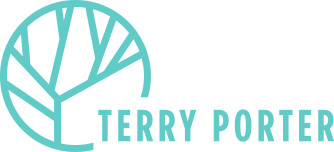Navigating Relationships: Wise, Foolish, and Evil People
The Bible provides profound insights into human behavior, categorizing people into three groups: the wise, the foolish, and the evil. Understanding these distinctions is crucial for navigating relationships and setting boundaries that foster growth and protect your well-being. Let’s dive into each type with relatable examples, expert insights, and practical strategies for dealing with them.
The Wise: Builders of Growth
Wise people are not necessarily the most intelligent but are defined by their openness to truth and reality. They embrace feedback, value self-awareness, and actively work to add value to others.
For instance, consider a teammate who actively seeks feedback on a project. They ask questions like, “How can I improve?” and apply the advice given. This behavior reflects the wisdom described in Proverbs 12:1: “To learn, you must love discipline; it is stupid to hate correction.”
Henry Cloud emphasizes, “Wise people are not perfect, but they’re willing to adjust themselves to truth.” They’re future-focused and mindful of their impact on others. When dealing with wise individuals, invest in open conversations and provide resources to help them grow further.
The Fool: Resistant to Reality
Fools may be talented and charismatic but resist confronting the truth about themselves. They shift blame, deny problems, and react defensively to feedback. John Townsend highlights, “Fools don’t take feedback because they think the problem is always someone else’s fault.” This mindset keeps them stuck, as they avoid the responsibility and humility needed for growth.
Imagine a coworker who repeatedly misses deadlines and blames external factors like “poor team communication.” Even after constructive feedback, they make no changes. Proverbs 12:15 captures this dynamic: “Fools think their own way is right, but the wise listen to others.”
To address foolishness, establish clear consequences. For example, document poor performance and outline expectations. While you cannot “fix” a fool, boundaries can protect your energy and encourage accountability.
The Evil: Intent on Harm

Terry Porter is an Executive Life Coach. Working with clients to clarify and pursue their life dreams.
Evil individuals take pleasure in causing harm, seeking revenge, or sabotaging others. Psalm 37:32 states, “The wicked try to trap and kill good people.” Unlike fools, evil people are deliberate in their actions, making them dangerous to engage with.
Consider a business partner who undermines your efforts, spreading false rumors to damage your reputation. John Townsend advises, “You can’t negotiate with evil… you must protect yourself.” Limit interactions and communicate through legal or formal channels when necessary.
Reflecting on Yourself
We all have moments where we’ve been wise, foolish, or even acted with harmful intent. The key is striving to stay in the “wise” category. Surround yourself with wise individuals who inspire growth and accountability. As Proverbs 1:5 suggests, “If you are already wise, you will become even wiser.”
Your Next Step
Are you struggling with boundaries in your relationships? Whether you’re dealing with a challenging coworker, a resistant family member, or your own growth hurdles, I’m here to help. As a life coach, I specialize in helping individuals create actionable strategies to foster healthy relationships and personal growth. Let’s work together to identify the wise people in your life, set boundaries with fools, and protect yourself from harm. CLICK HERE to schedule a NO-COST discovery session today. Together, we’ll build the tools you need to navigate life with wisdom and confidence.
